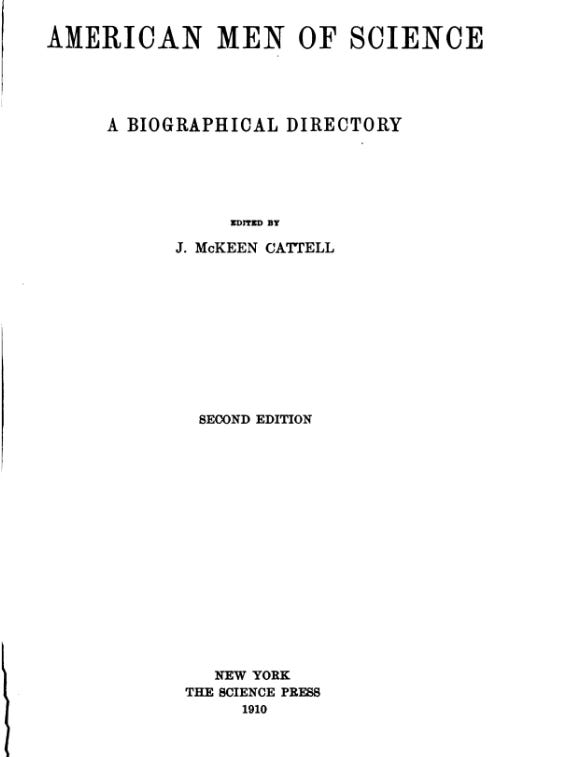With a few stylistic alterations, the passage below wouldn’t be too out of place today:
We are at present almost wantonly ignorant and careless in regard to the conditions which favor or hinder scientific work.
We do not know whether progress is in the main due to a large number of faithful workers or to the genius of a few.
We do not know to what extent it may be possible to advance science by increasing the number of scientific positions or how far such an increase might be expected to add to the number of men of genius.
We do not know to what extent increased salaries, better facilities and greater leisure would favor the quantity and quality of our work.
We do not know to what extent non-rational sanctions, such as reputation, offices, titles, degrees, prizes, membership in exclusive societies and the like are effective.
We do not know whether it is wise to combine teaching with research, or applied with pure science.
We do not know whether it is better for the professor and investigator to have a moderate salary, a life position and a pension, or to engage in severe competition for large prizes; whether obedience and discipline should be prescribed or the largest individual liberty allowed.
We know but little as to the kind of education, methods of work and mode life, which are most favorable to scientific productivity. In the face of endless problems of this character, we are as empirical in our methods as the doctor of physic a hundred years ago or the agricultural laborer today. [This was surely not a compliment . . . ]
It is surely time for scientific men to apply scientific methods to determine the circumstances that promote or hinder the advancement of science."
J. McKeen Cattell, "American Men of Science: A Biographical Dictionary" (1910 edition), p. 565. Available at https://babel.hathitrust.org/cgi/pt?id=hvd.hc2x9x&seq=575&q1=method.
Hat tip to Michael Nielsen and Kanjun Qiu for citing this book in footnote 115 here.


